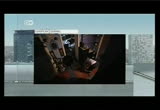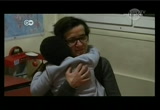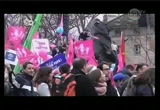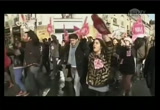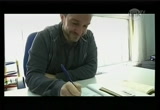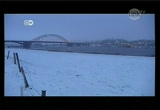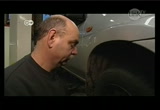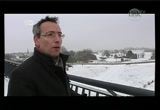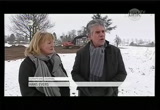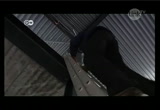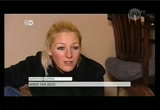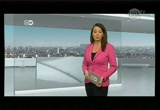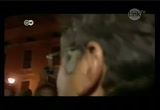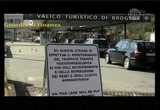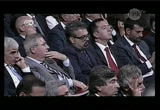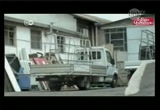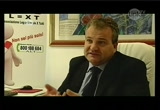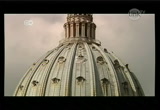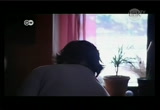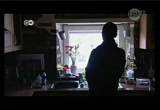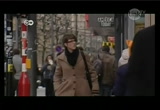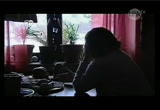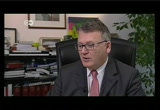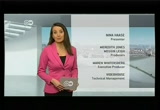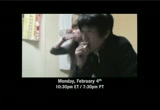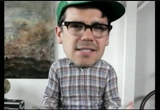tv Deutsche Welle European Journal LINKTV February 1, 2013 4:30am-5:00am PST
4:30 am
>> hello in a very warm welcome to "european journal" coming to you from dw studios in brussels. here's what's coming up in the next half-hour -- the netherlands -- why a town is creating an island. italy -- why small businesses are protesting against tax collectors. and luxembourg -- why illegal immigrants there want to get registered. children are typically raised by tibia will parents, but does it matter if they are a mother and father, or can two fathers or
4:31 am
two mothers do just as well -- children are typically raised by two parents. single-sex families are a controversial issue in europe. the number of so-called rainbow families are on the rise, but their legal status varies from country to country. in germany, gay and lesbian couples cannot jointly adopt a child or a baby. they can only adopt as individuals. in france, when the government announced its intention to give homosexual couples equal adoption rights, large crowds took to the streets in protest. >> for these two little boys, having two mothers is nothing unusual. their parents are a lesbian couple. beatrice, seen here, adopted the boys as a single woman.
4:32 am
her partner had no legal say in it, and by french law, singles may adopt, but same-sex couples may not. an initiative is under way to change that. for these two women, that would be an important step in the right direction. hiding their relationship from the authorities and not being able to adopt as a couple was very stressful for them. >> that really was not a pleasant time. we had decided to adopt as a couple, not just me by myself. it was very frustrating to be forced to say, "i want a child" and not "we want a child." that felt very uncomfortable, as if she had no part in it. >> equal rights for same-sex couples was one of french president francois hollande's campaign promises, but these women worry the debate it has sparked could hurt their children. they prefer to shield the boys from it entirely.
4:33 am
>> someone on the radio said a proper family is made up of a daddy and a mommy. i turned the radio off right away, but my son asked, "did you hear that? what nonsense." >> this couple are staunch catholics and take a different view. they define a family as consisting of a mother, father, and children only. they say homosexual couples raising children adopted or not are going against nature. >> the most important thing in society is the union of man and woman. the unity of the two is the only way to give a child balance. >> in a demonstration in paris against the government's proposals, they chant, "a mother. a father. it is fundamental." most of the protesters are
4:34 am
conservative, politically or religiously. many are willing to accept same- sex marriage, but they say letting gay couples to adopt or conceive in vitro is going to far. >> two men or two women are not able to give children what they really need. >> it is very simple -- man and woman were designed to marry and have children. >> homosexuals are not a family. >> what do you see as a family? people who love each other? then we do not have the same definition of family. >> some question weather same- sex couples are suited to raise children. advocates of the bill say they are and took to the streets of paris to demand rights for same- sex couples. the proposal would legalize gay marriage and allow same-sex couples to adopt. a provision for artificial insemination was originally planned but has now been stricken.
4:35 am
>> i'm not an animal, as something. i'm a citizen and pay taxes. i do not understand why i should be a second-class citizen. >> they were among the demonstrators. they cannot understand what anyone would have to fear from same-sex couples being given equal status with heterosexual couples. >> people say they are not homophobic, but they are against homosexuals. >> you hear stuff like that all the time. i do not understand any of this. this bill will not change anything in the minds of heterosexual. damage to c
4:37 am
>> the dutch were once a proud seafaring nation, and over the centuries, they have become skillful at finding ways of living close to water. they've had to. almost half of the country lies below sea level, but the dutch have managed to keep their feet dry, thanks to a clever system of channels, bridges, and levees across the country. what is considered the oldest city in the netherlands was built on the banks of a river that was and still is good for trade, but it also makes the town very susceptible to rising water levels brought on by climate change. the people are worried that their levees may soon prove ineffective, and so they've come up with a creative solution. >> the city embraces the rhine, but soon, one arm of the river will flow through an entire section of the city. according to the plan, about half of these houses will give
4:38 am
way to water. levies will be moved to create an island. most residents have left. the ones left no their days here are also numb. >> we are alone here. >> we are the last to leave. there's nothing we can do about it. >> in five years, there will be water here. it will come from the other side of the levy, flow underneath the levee, and back into the main part of the river. >> their family business with nine employees has been here for 20 years. one public authorities first unveiled the plan, they fought against it. >> what you have, you have.
4:39 am
it is never certain that something new will come, so you hold on to what you have. >> they did not want to do things the old way anymore. the city had been battling rising water levels for years before coming up with what in the netherlands is a pretty revolutionary idea -- to give the land back to the water. the program room for the river does not solve the problem of rising water levels. >> it is fantastic. we are getting our own island, just like in paris, and we are doing it ourselves. people can imagine the island and the things they would like to have there. of course apartments will be built. that has already been agreed upon. but lots of other great things can be developed here as well. >> a yacht harbor, a concert
4:40 am
stage, hotels, restaurants. local politicians see unlimited possibilities for the island project, but for those who stand to lose their homes, it is hard to share those visions. this man and his wife also have to move. the greenhouses where they've been growing flowers until recently were flattened, and soon bulldozers will tear down their house. both of them say they've come to terms with it, but what's next? >> they have always been a little vague about what exactly is going to be built there. that goes for the whole project, really. residents were not told exactly what was happening until the last minute. >> if as a politician you lay all your plans open on the table, do will have to deal with much more resistance than if you make your intentions known bit by bit. >> it is growing more and more cramped by the day.
4:41 am
boxes are piling up in the living room -- what to take and what to leave. the family is building a new house further west from here. they do not see a future for themselves on the island. >> we were compensated, and we will live somewhere else. the island will not be finished for another four or five years. if we wanted to stay, we would have to buy the land back. it would probably be too expensive. >> many people share those feelings. once the island is finished, few of the people who lived here before will be around, but frank is looking ahead. with the compensation, he can not only build a new house but a new workshop as well -- bigger and nicer than before. >> i am not angry anymore. there are new opportunities now. >> the building measures will make things safer, too.
4:42 am
neighbors were not around for the high water, but she can still remember it vividly. >> when you went out to the levee, you could see that the water level was with it, a flat surface. it was scary. it was a close call back then. >> the neighbors are moving to italy in a few weeks to open a bed-and-breakfast. the planned flooding was the final images for their decision, but they are not angry about having to make room for the river. >> maybe there's a better way to interact with water. not to fight against it, but to live with it. >> they agree. they plan to take up residence
4:43 am
on the island. they will be able to move into their new house at the end of the year. directly on the shore, a dream location, and they will not have to fear the river anymore. >> we assume that with the bypass, flooding will not be an issue anymore. that is the goal. i do not think i need to be afraid. >> and we know how to swim. [laughter] emma the city is responding to climate change. more room for the river and an island for the city. >> 1 trillion euros -- that's roughly how much the eu countries lose every year to tax evasion. brussels is not amused, not least because the euro crisis is far from over. now europe is looking for ways to more effectively track down and penalize tax dodgers. in italy, tax collecting is
4:44 am
done by the finance police, the guardia de finanza. employees often used dubious methods when chasing down tax defaulters. the tax collectors work on commission. the more people they catch, the better for them. that is putting pressure on ordinary italians, especially small and medium-size companies. >> it was a spectacular protest against italy's new tax laws. the owner of a small beach bar scaled the dome of st. peter's basilica in rome and stayed put for some 24 hours. when he climbed back down, he was greeted by a cheering crowd. [applause] >> i really hope this tax issue is resolved soon and our small businesses as well as the whole economy can pick up again, at least a little.
4:45 am
>> the tax measures by italy's technocrat government under the prime minister are another weapon in the country's never- ending fight against tax evasion. the so-called financial police is seeking to recover an estimated 150 billion euros, and it is coming down hard on the country's culture of tax evasion. >> we are conducting stringent checks on luxury vehicles. if the income tax returns filed by an owner indicates he could never afford such a vehicle, then we check up on the driver and his business and compare the data to see if it matches up. if it does not, we press charges. >> they show us video footage of controls at the swiss border. officers are seeking to prevent and declared in come from leaving italy. from headquarters in rome, authorities keep close watch on
4:46 am
luxury yachts, monitoring vessels in the ports. they found numerous owners who have failed to pay taxes. >> the finance police check tax returns for offenses that need to be prosecuted. we take legal action against any instance of tax evasion and then cover falsified statements in our drive to recover and declared revenue. >> customs officers at rome's main airport are not just on the lookout for illegal substances. they are also seeking cash. without assets cost the italian economy billions. >> we need to get a grip on tax evasion. sometimes it may look like a war. and it is a war. civilian society against tax evasion. >> but the war is also taking victims of modest means. the national tax collection agency makes money on tax
4:47 am
evaders and uses aggressive their demands way hard on small businesses. the agency refuses to comment on its practices. the pressure has driven some to suicide. mario's business made aluminum fixtures. they're demanding not just back taxes but high interest on outstanding payments. the 59-year-old shot himself in the chest. his daughter blames the government. >> it is not normal for a state to act like an extortionist. over five years, we were forced to pay 100% interest. >> that is during an economic recession with near empty order books. mario's tax debt doubled over the course of five years. he knew he would never be able to pay the bill. m the state does not understand us. it only takes action if the
4:48 am
companies run into trouble, but small people like us -- we are like ghosts in the crisis. the price we've had to pay as much too high. it was only after my father's death that they were willing to look at the problems of small businesses like ours. >> then, there was the case of a bricklayer from bologna who set himself on fire outside a city tax office. his death prompted his daughters and widow to join forces with small and midsize businesses in the campaign to draw attention to the plight of families who can no longer make ends meet. >> there are many companies that cannot pay any taxes at all. they are taking care of their employees, making sure they have enough to put food on their families' tables, but they are using measures one can only call terrorism, and that has dramatic consequences like suicides.
4:49 am
>> amid growing public anger, agee has been targeted by a wave of attacks, including a bomb blast at a neighbor's office. employees regularly face threats. the government is now considering weather it can invoke the mandate to collect taxes -- whether it can revoke the mandate to collect taxes. >> economic hardship to rise two people to attempt suicide nearly each day. it affects every profession. it is a scandal. >> he said desperation drove him to risk his life on top of st. peter's. his protest is unlikely to be the last, calling attention to the human cost of italy's economic crisis. >> even in times of crisis, the european union attracts hundreds of thousands of people who come every year in search of a better life, but europe does not always provide a welcome.
4:50 am
countries like greece lack the resources to deal with asylum applications, and human rights organizations have criticized their catastrophic conditions in the camps of the eu's borders. those who actually make it to the heart of europe often only do so illegally. luxembourg is one particularly popular destination immigrants, both within europe and other parts of the world. about half the people living in luxembourg on non nationals, and many there illegally, but that could soon change. >> short 10 hours a week as a cleaner in this luxemburg home illegally. an ethnic serb from kosovo, she has been in the country for three years, but she does not have a work permit.
4:51 am
>> i feel very nervous in public. they ask to see my papers, for example on the bus, when the tickets are checked. the police checked the trains often. when i go shopping in the city, i am very tense. >> her employer also has reason to be nervous. the luxembourger is friends with her, but by employing her as a cleaning lady, she is breaking the law. alexandra says she is hardly alone. >> many people are working illegally, from cleaners in private homes to hotel and restaurant workers here in luxembourg. there -- they are a very large part of our economy and contribute to the wealth of our society here in the city. >> in a rich country like
4:52 am
luxembourg, illegal immigrants are a cheap source of labor. paying workers the minimum wage of nearly 1900 euros a month is just too much for many, but an eu law is forcing the country to crack down on illegal work. the government is offering a grace period until the end of february. illegal workers can come forward together with their employers without fear of prosecution. >> we are actually offering companies a chance to normalize themselves, to make themselves legal, by giving the people currently working there illegally normal employment contracts. under the same conditions the others received. >> to be eligible, applicants must have been working illegally in luxembourg for at least nine months, receive the minimum wage, and work 40 hours a week. the barrier is so high that many do not want to out themselves.
4:53 am
>> during these two months, employers are immune to prosecution. i hope we can depend on that. the ministry also put it in writing, and i really hope i can depend on it. >> alexandra and her cleaning lady get advice at the independent immigrants aid organization. the 40-hour week requirement is an obstacle. legally, alexandra can only pay her held for 10 hours, so she has to persuade other employers to back up -- backer up with authorities. it will not be easy, but she has got to try. >> i do not have any problem coming clean with the government. i have never stolen or cheated or done anything wrong. i have always worked. i just want to be legal like any other normal person.
4:54 am
>> we can tell when the employers cooperate, when they call here and want to get everything straightened out, then the immigrants are much more confident. but if they work for employers who are more skeptical or who really have no interest in legalizing them, then the immigrants are very scared. >> they have good reason to be scared. they will only have a chance at a residence permit if all the papers are in order. if not, they face stiff penalties. >> we have defined the conditions very clearly so people will know if they fulfill these criteria or not. if they do not fulfil the criteria, of course, they will be facing a situation where they can be deported. they should be aware of that. >> she might have to return to kosovo, and her employer could
4:55 am
face up to a year in prison. they cannot understand why the state would put them in such a difficult position. >> i want to finally get a residence permit. i just want to be able to live in luxembourg normally and sleep in peace. >> she is among the relatively few with a chance at legalizing her status. if she does not, she will find in the future, most employers in luxembourg will be unwilling to take the chance. >> that report brings us to the end of this edition of "european journal" from brussels. we hope you have enjoyed the show. tune in again at the same time next week if you can. until then, from all of us here in brussels, thanks very much for watching. auf wiedersehen, and thanks for
86 Views
IN COLLECTIONS
LinkTV Television Archive
Television Archive  Television Archive News Search Service
Television Archive News Search Service 
Uploaded by TV Archive on

 Live Music Archive
Live Music Archive Librivox Free Audio
Librivox Free Audio Metropolitan Museum
Metropolitan Museum Cleveland Museum of Art
Cleveland Museum of Art Internet Arcade
Internet Arcade Console Living Room
Console Living Room Books to Borrow
Books to Borrow Open Library
Open Library TV News
TV News Understanding 9/11
Understanding 9/11
